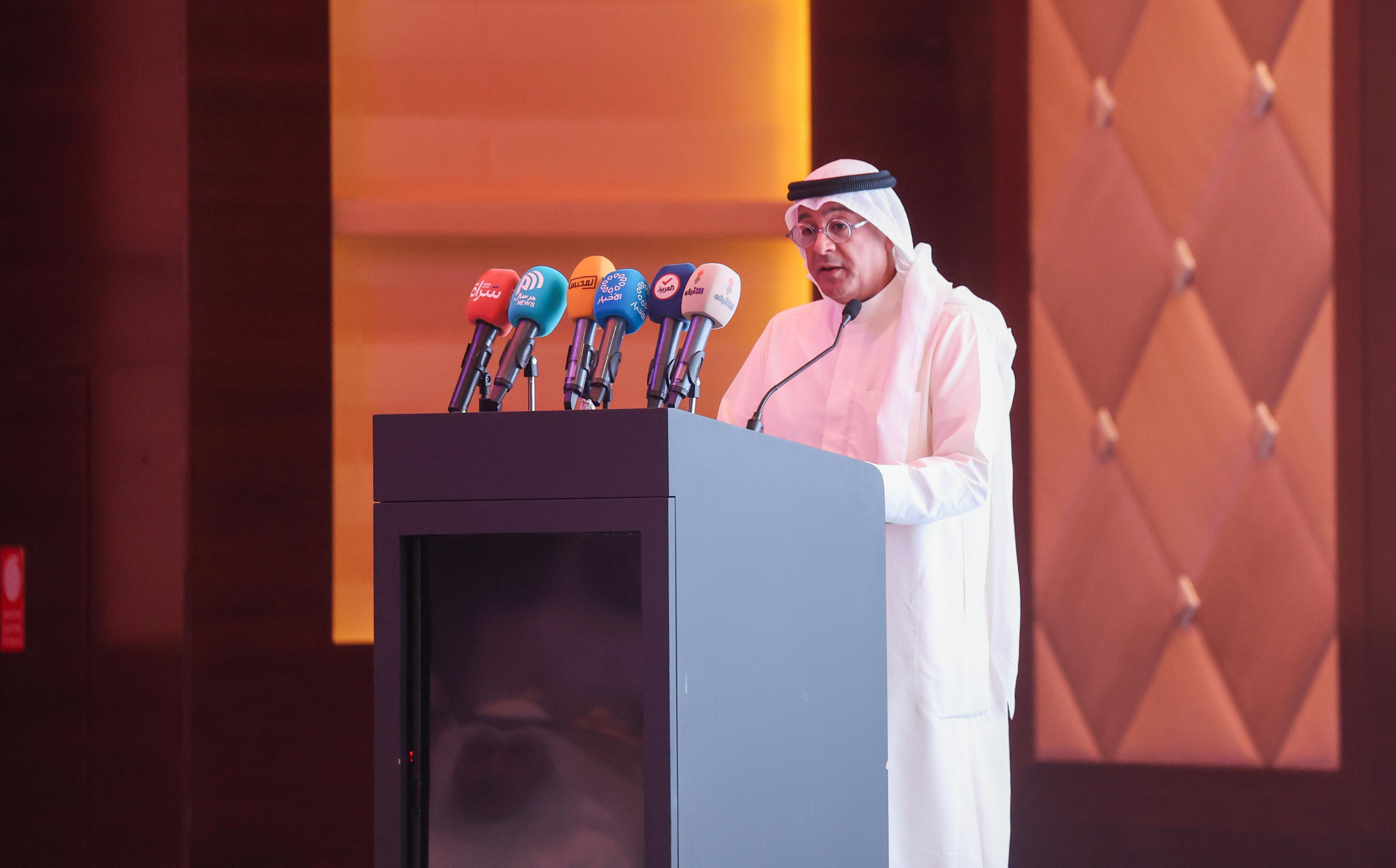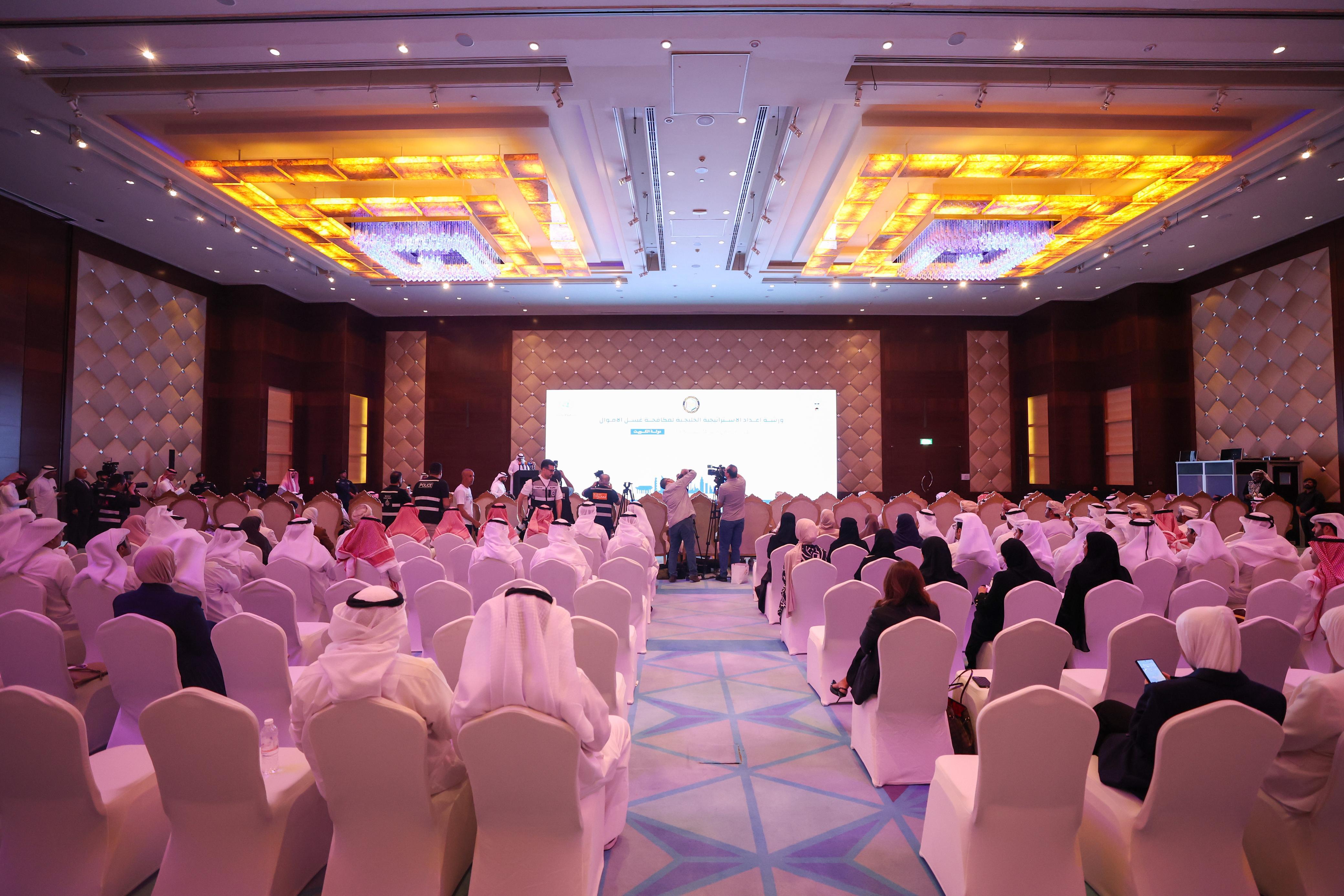His Excellency Mr Jasem Mohamed Albudaiwi, Secretary General of the Gulf Cooperation Council (GCC), affirmed that the GCC states have enacted laws and legislation to combat money laundering, stressing that the GCC member states are preparing a Gulf strategy to confront it.
"This will establish new foundations for joint cooperation to face this complex crime and elevate coordination with our international partners," His Excellency said.
These remarks came during the participation of His Excellency the GCC Secretary General in the inauguration of the workshop for the preparation of the Gulf Strategy for Combating Money Laundering, hosted by the Ministry of Interior of the State of Kuwait, in cooperation with the United Nations Office on Drugs and Crime (UNODC) Regional Office, today, Monday, September 8, 2025, in Kuwait City. Present in the event were a number of specialists from the Ministries of Interior and relevant authorities in the GCC states.
At the beginning of his speech, His Excellency Mr Albudaiwi extended his sincere thanks and appreciation to His Highness Shaikh Meshal Al Ahmad Al Jaber Al Sabah, Amir of the State of Kuwait, for the State of Kuwait's hosting of this workshop, and for the facilities and support provided by the State of Kuwait to ensure the success of the Council's work, as well as for the support and attention that joint Gulf action receives from His Highness and his brothers, Their Majesties and Highnesses, the leaders of the GCC states, in all fields.
His Excellency the GCC Secretary General pointed out that the world today is witnessing unprecedented challenges in combating money laundering, the effects of which are not limited to economic stability but also extend to fueling terrorism and organised crime, as well as threatening international peace and security.
"The global estimates indicate that the volume of money laundering ranges between 2% and 5% of the global GDP, which is between $800 billion and $2 trillion USD. Given their geographical location, economic status, and openness to the world, the GCC states are not immune to these risks. Rather, they are fully aware that any loophole in their financial or regulatory systems could be exploited to pass illicit funds or to finance activities that threaten their security and the security of the region and the world," His Excellency said.
"Accordingly, the GCC states have adopted laws and enacted legislation to ensure the deterrence of these risks, especially as these laws and legislations are in line with the requirements of the international community and international institutions concerned with combating money laundering," His Excellency added.
Moreover, His Excellency stressed the necessity of adopting an integrated Gulf security strategy to combat money laundering, one that is based on the principle of collective security and translates into practical, deterrent, and effective plans.
"The GCC states had emphasised the importance of developing legislative systems to combat terrorism financing and money laundering when they launched their vision for regional security in 2024," His Excellency underscored.
He also pointed to the keenness of the General Secretariat, in coordination with the Ministries of Interior and competent authorities in the GCC member states, to ensure this strategy is comprehensive and integrated, based on five proposed main pillars.
"The first pillar involves developing supportive security legislation and policies to enhance the role of the Ministries of Interior in closing loopholes that criminals might exploit and ensuring effective coordination with financial and regulatory authorities. The second pillar focuses on joint security operations, investigations, and coordination through the formation of Gulf task forces and the implementation of operations. The third pillar pertains to technology and security analysis through investment in artificial intelligence, financial data analysis, and a secure electronic link for the exchange of information on financial crimes between the Ministries of Interior and relevant authorities. The fourth pillar is dedicated to tracing and confiscation by creating mechanisms to track illicit funds linked to crimes of drugs, corruption, terrorism, and human trafficking, and implementing joint seizure, freezing, and confiscation operations, while enhancing international cooperation in asset recovery. The fifth pillar covers security training and awareness through the preparation of specialised training programmes for officers of the Ministries of Interior, the development of unified operational manuals, and the implementation of awareness campaigns for sectors exposed to risks," His Excellency detailed.
His Excellency concluded his speech by emphasising that the workshop for preparing the Gulf Strategy for Combating Money Laundering represents an important milestone in the journey of joint Gulf action to confront one of the most dangerous cross-border crimes, which not only threatens "our economic and financial security but its effects also extend to the stability of our societies and the reputation of our commercial and financial systems at the regional and international levels."


